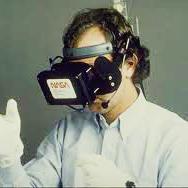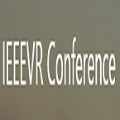Technology presents a significant educational opportunity, particularly in enhancing emotional engagement and expanding learning and educational prospects for individuals with Neurodevelopmental Disorders (NDD). Virtual reality emerges as a promising tool for addressing such disorders, complemented by numerous touchscreen applications that have shown efficacy in fostering education and learning abilities. VR and touchscreen technologies represent diverse interface modalities. This study primarily investigates which interface, VR or touchscreen, more effectively facilitates food education for individuals with NDD. We compared learning outcomes via pre- and post-exposure questionnaires. To this end, we developed GEA, a dual-interface, user-friendly web application for Food Education, adaptable for either immersive use in a head-mounted display (HMD) or non-immersive use on a tablet. A controlled study was conducted to determine which interface better promotes learning. Over three sessions, the experimental group engaged with all GEA games in VR (condition A), while the control group interacted with the same games on a tablet (condition B). Results indicated a significant increase in post-questionnaire scores across subjects, averaging a 46% improvement. This enhancement was notably consistent between groups, with VR and Tablet groups showing 42% and 41% improvements, respectively.
翻译:暂无翻译




